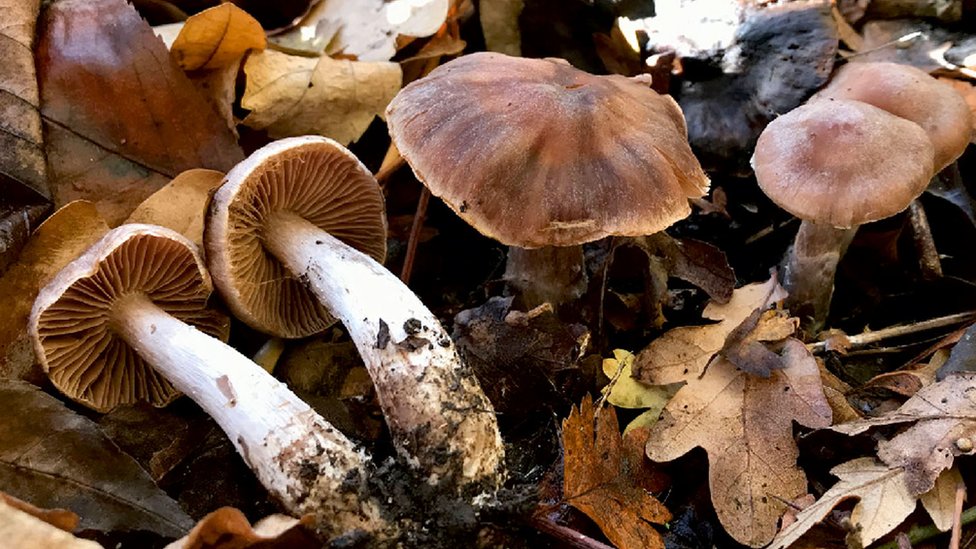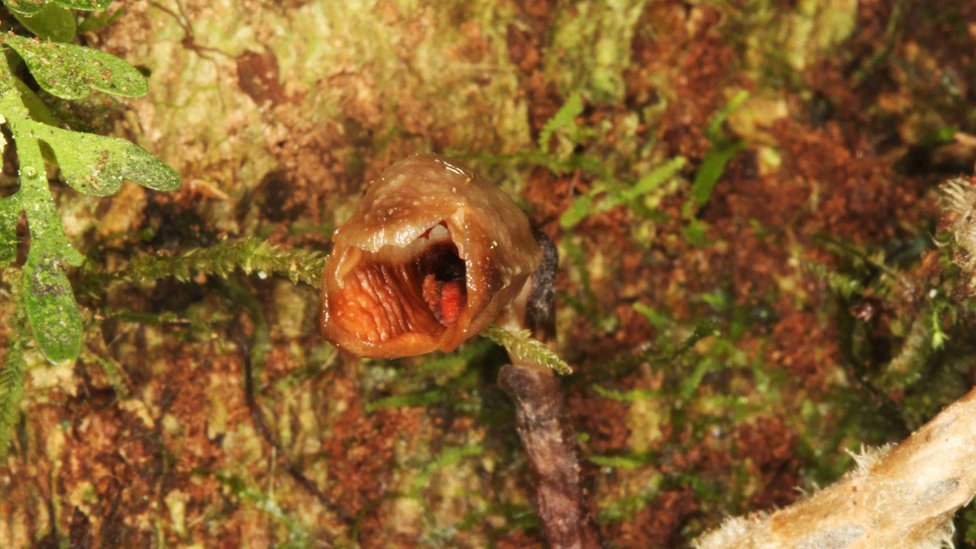

image copyrightAndy Overall
Six new species of toadstool have been discovered in the UK this year, including one at Heathrow Airport.
The discoveries are among more than 150 different plants and fungi identified in 2020 by experts at the Royal Botanic Gardens, Kew.
At the last count there were more than 12,000 species of fungi in the UK, many hidden out of sight in the soil.
Scientists say we know surprisingly little about fungi because so few of them have been identified.
The six fungi were found in woods up and down the country, from Sussex to the Scottish Highlands.


image copyrightRick Burian
The most unlikely discovery was a toadstool growing among trees beside a reservoir at Heathrow Airport, which was found by fungi expert Andy Overall.
“It’s reddish-brown, doesn’t blow your socks off to look at, but it’s a special thing,” he told BBC News.
Experts at Kew examined the specimen, and DNA studies later confirmed that it was new to science.
He has named the toadstool, Cortinarius heatherae, after his wife Heather.
image copyrightGabriel Mendes Marcusso
Two more species were found in England, one at Devil’s Dyke in Sussex and the other in woods near Barrow-in-Furness.
Three new Scottish species were also identified; one at Caithness in the Highlands and two in the Black Wood of Rannoch.
All six species belong to a prolific group of fungi, known as web caps because they are covered by a cap of threads resembling spider’s webs.
The toadstools live in harmony with trees, helping the likes of oak, beech, birch and pine absorb water and nutrients.
image copyrightBalakompalli
Kew expert Tuula Niskanen found two of the Scottish species, including Cortinarius aurae, which she named after her daughter, Aura.
“You don’t need to go to the Amazon or Africa to find new fungi, you can find them close to you,” she told BBC News. “Even in London you can find new species.”
She said it was important to find and name new fungal species so that they can be better understood and protected.
We have a “Stone Age” level of knowledge about fungi compared with that of plants and animals, she added.
image copyrightEnoc Jara
New plants and fungi are still being discovered around the world, at the rate of about 2,000 a year.
Scientists at Kew and their collaborators have named and published scientific details of 156 species this year. Of these 27 are fungi, including six from the UK.
Dr Martin Cheek, a senior scientist at Kew, said there has been a bumper list of incredible newly named species this year. “It’s pretty sensational to have six new species to science from the UK and it would only ever happen with fungi because of the fungi on our planet we know such a minute proportion of them.”
image copyrightRbg Kew
image copyrightBart Wursten
Other discoveries by scientists at Kew include:
Follow Helen on Twitter.
Read MoreFeedzy
Galveston, Texas, is quickly emerging as a premier destination for deep-sea fishing enthusiasts in search…
In the ever-evolving landscape of construction and building maintenance, sustainability has emerged as a crucial…
Minnesota, celebrated for its picturesque rural landscapes and vibrant urban centers such as St. Paul…
In the realm of kitchen renovations, cabinetry plays a pivotal role in shaping both the…
In the field of driving regulations, one of the most critical areas of focus is…
Minnesota's harsh winters and humid summers significantly affect residential roofing durability. Homeowners should regularly inspect…